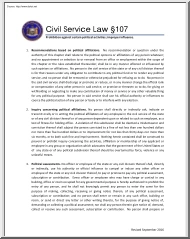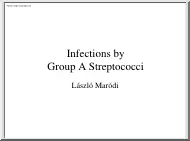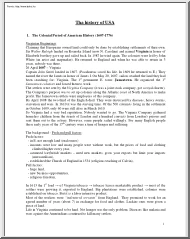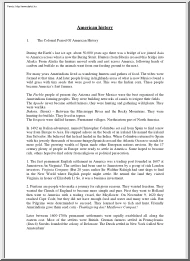Please log in to read this in our online viewer!
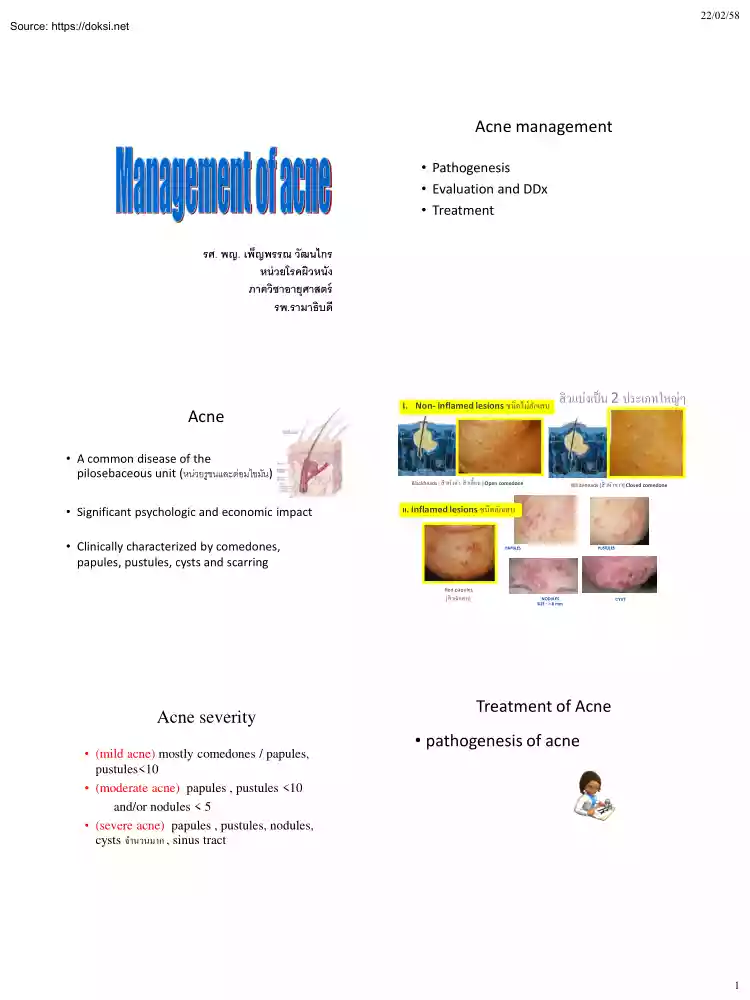
Please log in to read this in our online viewer!
No comments yet. You can be the first!
What did others read after this?
Content extract
22/02/58 Acne management • Pathogenesis • Evaluation and DDx • Treatment รศ. พญ เพ็ญพรรณ วัฒนไกร หน่ วยโรคผิวหนัง ภาควิชาอายุศาสตร์ รพ.รามาธิบดี Acne • A common disease of the pilosebaceous unit (หน่วยรูขนและต่อมไขมัน) • Significant psychologic and economic impact I. Non- inflamed lesions ชนิดไม่อกั เสบ OPEN COMEDONES / BLACK HEAD สิ วแบ่งเป็ น 2 ประเภทใหญ่ๆ CLOSED COMEDONES / WHITE HEAD Blackheads [ สิ วหัวดำ, สิ วเสี้ ยน ] Open comedone Whiteheads [สิ วหัวขำว] Closed comedone II. Inflamed lesions ชนิดอักเสบ • Clinically characterized by comedones, papules, pustules, cysts and scarring PAPULES PUSTULES Red papules [สิ วอักเสบ] Acne
severity • (mild acne) mostly comedones / papules, pustules<10 • (moderate acne) papules , pustules <10 and/or nodules < 5 • (severe acne) papules , pustules, nodules, cysts จำนวนมำก , sinus tract NODULES SIZE : > 8 mm CYST Treatment of Acne • pathogenesis of acne 1 22/02/58 Pathogenesis of acne 4 key factors causing acne Acne Rx: Target the pathogenesis 1 Excessive sebum production 1. removing obstructions of the follicles (comedolytics) 2. reducing the rate of sebum secretion, (anti-androgens) 3. reducing the follicular P acnes (antimicrobials) 4. anti-inflammatory agents 2 Follicular Hyperkeratinization Microcomedone formation 3 Increase P. acnes colonization Comedones 4 Inflammation Inflammed papules Pustules,cysts,nodules Scarring FOR INTERNAL USE ONLY Mode of action of Acne therapeutic agents Global Alliance consensus on Acne Rx Antibacterial Follicular keratinization BP topical/oral ATB azelaic acid Topical retinoids
Oral isotretinoin Inh seb gl function Anti-inflam effect IL,oral steroids Estrogen,OC Oral Isotretinoin Antiandrogens: spironolactone • Retinoids: – Normalize follicular proliferation and differentiation – Target the formation of comedone – Anti-inflammatory action – Treatment and maintenance • Topical retinoids Tretinoin (Retin-A, Retacnyl , StievaA) Isotretinoin (Isotrex) Adapalene (Differin® ) • Systemic retinoids Isotretinoin : Roaccutane, Acnotin, Sotret ATB inh PMN chemotaxis FOR INTERNAL USE ONLY Global Alliance consensus on Acne Rx • Antibiotics: – Minimize the use of antibiotics (<12 weeks) – Avoid antibiotics as monotherapy • BPO: – Has a greater and faster effect in suppressing P. acnes > topical ATBs – No antibiotic resistance • Topical ATBs/Antimicrobials Benzoyl peroxide Clindamycin Erythromycin (Eryacne) Azelaic acid (Skinoren ® 20%) Dapsone gel FOR INTERNAL USE ONLY Global Alliance consensus on Acne Rx • Combination
therapy: – Antimicrobials + retinoids – Mild to moderate acne – Faster and better results in reduction of lesions • Adapalene–benzoyl peroxide (Epiduo Gel®,Galderma) • Benzoyl peroxide– clindamycin (Duac®, Stiefel ) • Isotretinoin-erythromycin (Isotrexin gel, Stiefel) • Benzoyl peroxide– erythromycin • Tretinoin-clindamycin FOR INTERNAL USE ONLY 2 22/02/58 Evaluation of acne patients • Severe/sudden acne Drug/other precipitant • Therapy-resistant acne • Unusual clinical • Rapid relapse post isotretinoin • Signs of hyperandrogenism Syndrome associated – severe acne – sudden onset – hirsutism Hyperandrogen – irregular menstrual periods Endocrine abn. – deepening of the voice – precocious puberty – increase in libido Hyperandrogenism • PCOS • CAH • Adrenal neoplasia • Ovarian neoplasms Endocrinologic Testing POLYCYSTIC OVARY SYNDROME • Anovulation • ovarian cysts • irregular menses, obesity, androgenic alopecia,
hirsutism, acne • increased risk of DM endometrial carcinoma – Serum total testosterone 150 to 200 ng/dL – increased LH/FSH ratio (> 2.0) symptoms of hyperandrogenism • Routine endocrinologic evaluation (e.g, for androgen excess) is not indicated for the majority of patients with acne. • In young children may be manifested by body odor, axillary or pubic hair, and clitoromegaly. • Laboratory evaluation is indicated for patients who have acne and additional signs of androgen excess. • Adult women may present with recalcitrant or late-onset acne, infrequent menses, hirsutism, male or female pattern alopecia, infertility, acanthosis nigricans, and truncal obesity. 3 22/02/58 DDx in acne Differential diagnosis Folliculitis – staphylococcal, Gram-negative, eosinophilic, Pityrosporum, Demodex monomorphous Malassezia spp Staph. epidermidis Propionibacterium acnes mite Demodex Folliculitis Bacterial folliculitis • acne vulgaris • Bacterial
folliculitis commonly due to Staphylococcus aureus • Gram-negative folliculitis • Acne/acneiform eruptions due to topical or systemic drugs do not have comedos Acne=disease of the sebaceous gland Sebaceous gland normal flora • variety of acne lesions (comedones, pustules, papules, and nodules) • on the face, back, or chest • Due to Pseudomonas aeruginosa,Klebsiella, Enterobacter, Proteus spp. • Usually in acne patients receiving long-term antibiotic Drug-induced folliculitis (acneiform eruption) Pityrosporum folliculitis gram stain: oval, round yeast with budding yeast • corticosteroids • Anabolic steroids (danazole and testosterone) • androgenic hormones, • iodides, bromides, • lithium, • isoniazid • Anticonvulsant :phenytoin • inhibitors of the epidermal growth factor receptor (EGFR) • Less often, azathioprine, cyclosporine, vitamins B1-2-12 vitamin D2, phenobarbital, PTU propylthiouracil, 4 22/02/58 Drug-induced folliculitis (acneiform
eruption) • corticosteroids • Anabolic steroids (danazole and testosterone) • androgenic hormones, • iodides, bromides, • lithium, • isoniazid • Anticonvulsant :phenytoin • inhibitors of the epidermal growth factor receptor (EGFR) กำรรักษำสิ ว ACNE การรักษาโดยใช้ ยา ยารั บประทาน ยาทาเฉพาะที่ การรักษาโดยวิธีทางกายภาพ การกดสิว การฉีดยาสตีรอยด์ ใต้ หวั สิว Chemical Peeling การรักษาโดยใช้ ยาทาเฉพาะที่ • all topical treatments are preventative, • use for 6–8 weeks is required to judge their effcacy. • The entire acne affected area is treated, not just the lesions, and • Long term usage is the rule. Epidermal Growth Factor Receptor (EGFR) Inhibitor–Associated Eruption • gefitinib, cetuximab,
erlotinib, EGFR inhibitors are used to Rx advance malignancies • Clinically : eruptive, monomorphous follicular pustules and papules • the face, scalp and upper trunk ACNE (โรคสิ ว) การรักษาโดยใช้ ยา ยาทาเฉพาะที่ ใช้ กับสิวไม่ รุนแรง - ปานกลาง ใช้ ร่วมกับยารับประทานเพื่อรักษาสิวรุ นแรง ยารับประทาน ใช้ กับสิวรุ นแรงปานกลาง - รุ นแรงมาก Topical Therapy • Topical retinoids 0.01-01% • จับและกระตุ้น nuclear retinoic acid receptors (RARs) • Affects the expression of genes involved in cell proliferation, differentiation, melanogenesis and inflammation • comedolytic and anti-inflammatory • Maintenance Rx 5 22/02/58 Topical Therapy • Topical retinoids 0.01-01% • SE
irritation / sun sensitivity • Low concentration • Cream VS alcohol-based gel • hs / every- other- day or short contact 30 min daily • + moisturizer • Benzoyl peroxide (BPO)2.5-5% • nonspecific bactericidal effective against P acnes, and • bacterial resistance to benzoyl peroxide has not been reported • Ideal for combination Rx Topical Therapy • Benzoyl peroxide 2.5-5% • SE dryness , irritation • Short contact to decrease irritation • Topical application at least 1 hour to be effective Topical Therapy • Topical antibiotics (e.g, erythromycin and clindamycin) • effective acne treatments. • use of these agents alone - associated with development of bacterial resistance. • resistance is lessened if topical antibiotics are used in combination with BPO Topical Therapy-Others • Salicylic acid • Azelaic acid • sulfur, resorcinol, sodium sulfacetamide, aluminum chloride, and zinc Topical Therapy • Salicylic acid= lipid soluble beta-hydroxy acid,
comedolytic • conc. 05-2% • Resorcinol= antimicrobial • Sulfur= ลดการสร้ าง FFA, keratolytic • OTC – Acne cream SA0.5%+R2%+sulfer4% – Postacne cream: SA0.8%+sulfer3%+calamine – Acne lotion: SA0.8%+R8%+ZnO,talc 6 22/02/58 Topical Therapy การรักษาโดยใช้ ยารับประทาน • Azelaic acid: dicarboxylic acid • 20% cream • Antimicrobial , comedolytic, competitive inh of tyrosinase • Rx mild – mod acne with PIH Oral antibiotics • INDICATIONS • moderate and severe acne and treatment resistant forms of inflammatory acne. • chest, back, truncal acne • patients in whom absolute control is essential; scarring, post inflammatory hyperpigmentation. Problems with Antibiotics use in general • Vaginal candidiasis; • Bacterial resistant strains; • gram-negative folliculitis; • pseudomembranous colitis (especially clindamycin and broad spectrum antibiotics). • First line ATB :
tetracyclines, macrolides • Other antibiotics, such as amoxycillin, clindamycin and trimethoprime/sulfamethoxazole are second line treatments. Tetracycline • P. acnes sensitive; • inexpensive; 500-1000 mg/d • dietary restriction, dairy products • tooth discoloration (under age 9); avoid during pregnancy; • photosensitivity • 500-1000 mg/day 1 hour a.c or 2 pc • Use in children >= 12 years 7 22/02/58 Doxycycline • Lipophilic: • P. acnes very sensitive; resistance rare; photosensitivity, • More expensive; better GI absorption • avoid during pregnancy and in children • 100-200mg/d pc Erythromycin • increasing P acnes resistance; • gastrointestinal upset • hepatotoxicity more with estolate form; • inexpensive; • ok in pregnancy, children < 9 years of age; • not first line ATB therapy in acne. • 1000 mg/d pc Trimethoprim-Sulfamethoxazole Clindamycin • Lipophilic; • P. acnes very sensitive; • gram –ve folliculitis •
crystalluria (push fluids); • FDE, hepatitis, bone marrow suppression; • hypersensitivity reactions (erythema multiforme, SJS, toxic epidermal necrolysis). • P. acnes very sensitive; • somewhat lipophilic; • pseudomembranous colitis makes it third-line drug. • Mainly used topical form, in combination+BPO Amoxicillin แนวทำงเพื่อลด ATB resistance • 250 mg twice daily to 500 mg three times a day • alternative Rx and may be useful in pregnancy • Topical ATB in mild acne use with BPO/RA • Oral ATB in moderate to severe acne • กาหนดระยะเวลาการใช้ ATB 3-6m และประเมินผลการรักษา ใน 6-12 wk 8 22/02/58 Hormonal Rx Oral isotretinoin agents that decrease endogenous production of androgens by ovary or adrenal gland • oral contraceptives, • glucocorticoids, • gonadotropin-releasing hormone (GnRH) agonists • Isotretinoin is a systemic retinoid that is
highly effective in the treatment of severe, recalcitrant acne vulgaris • Oral Isotretinoin effects 1. normalization of epidermal differentiation, 2. depresses sebum excretion by 70%, 3. anti-inflammatory, 4. reduces P acnes Indications oral isotretinoin Oral isotretinoin, Administration and dosage • severe acne not responding to antibiotics and topical therapy. • less severe forms of acne that produce scarring or excessive psychologic distress • acne that has demonstrated resistance to other conventional systemic treatments such as oral antibiotics. • acne variants: acne conglobata, acne fulminans (in combination with corticosteroids) • acne with gram-negative folliculitis • varies from 0.5 to 1 mg/kg divided in two doses. • no clinical response expected earlier than 1 to 2 months from initiation of treatment , • A flare of acne several weeks after initiation of treatment in 6% of patients. • The usual duration of treatment varies with a total cumulative
treatment dose of 120 to 150 mg/kg. Low dose isotretinoin Oral isotretinoin • (eg, 0.1 to 040 mg/kg daily, or 10 mg daily to 10 mg thrice weekly) • effective and very well tolerated. • Less Remissions when patients do not complete a cumulative dosage • 40–60% of patients remain acne-free after a single course of isotretinoin. Antiandrogens: Spironolactone • Relapse 1/3 of the relapsing pt need only topical Rx 2/3 oral treatments. 9 22/02/58 Adverse effects Adverse effects • Birth defects (pregnancy: category X) • Early epiphyseal closure – • Retinoid embryopathy is characterized by craniofacial, cardiovascular, central nervous system, and thymus abnormalities • ไม่ควรใช้ ในเด็ก อายุ < 18 • Two forms of contraception must be used, from 1 month before therapy until 1 month after common side effects • pruritus, mucocutaneous SE dryness of skin eyes, lips, mouth, and nose (treatment with emollients), •
Lipid abnormalities (dietary management), • myalgia,and arthralgia (reduction of intense physical activity or use of analgesics) • SE dose-related, reversible, and respond to symptomatic therapy. กำรรักษำเสริ ม adjunctive therapy Less common SE • hepatitis • photosensitivity (advise sun protection). • psychiatric side effects, including depression, suicide ideation, and suicide controversial COSMETICS / SKIN CARE • gentle skin cleansing • use moisturizers , non-comedogenic, non-acnegenic products • Avoid : oil-based , waterproof , pressed powder • Water-based, silicone-based (cyclomethicone, dimethicone), loose powder 10 22/02/58 กดสิว DIET in acne • ? may be link between milk, high-glycemic index foods and acne. • Topical Comedolytic 3-4 wks prior for easier extraction • ? the role of chocolate, sweets, milk, highglycemic index foods, and fatty foods in acne requires further study Chemical Peeling
การฉีดยาใต้ หวั สิว Intralesional corticosteroid injections • effective in the treatment of individual acne inflammed papules, nodules. • Triamcinolone 1-10 mg/ml, 0.05-025 ml/lesion • SE atrophy, hypopigmentation • AHA, glycolic acid peels • BHA salicylic acid peels -TCA Take home message Laser / Light • สิ่งที่อาจเกิดขึ ้นหลังทาเลเซอร์ • pain -discomfort, erythema, edema, crusting , • hyper-hypopigmentation Before • Acne vulgaris is a common disorder of the sebaceous glands • characterized clinically by comedones, papules, pustules, cysts and scarring. • Many other acneform eruptions exist After 11 22/02/58 Evaluation of acne patients • Hyperandrogenism • Endocrine abn. • Drug • Folliculitis • Unusual clinical presentation • sudden acne • Distribution • Comedones • Monomorphous Acne treatment • Aim to Target the 4 pathogenic
factors of acne – Infection – non-infection • PCOS/Rare syndrome Mode of action of Acne therapeutic agents Antibacterial Acne Rx the clinical severity grade Follicular keratinization BP topical/oral ATB azelaic acid Topical retinoids • extent of affected areas Oral isotretinoin • types of lesions Inh seb gl function Anti-inflam effect Estrogen,OC Oral Isotretinoin Antiandrogens: spironolactone IL,oral steroids ATB inh PMN chemotaxis noninflammatory comedones; inflammatory papules, pustules, nodules • presence or absence of scarring and/or dyspigmentation. Acne Rx • Topical • retinoids and • antimicrobials • benzoyl peroxide, • antibiotics, • azelaic acid • Systemic • antibiotics, • oral isotretinoin, • hormonal Rx in females Combination therapies work better 12 22/02/58 Acne treatment Take home message • Begin with topical treatment whenever appropriate, • With early and adequate treatment, the risk of permanent scarring
can be reduced • systemic therapy whenever necessary, • All acne treatments work relatively slow improvement is generally after 2-3 months of Rx • limit use of antibioticsoral or topical whenever possible Take home message • Doctor’s Knowledge • Patient’s education / Patient’s compliance • play an important role in the overall response and outcome. แนวทำงกำรดูแลรักษำโรค Acne Clinical Practice Guideline Acne • • • • • • • • • • • • รองศาสตราจารย์ นายแพทย์ นภดล นพคุณ ศาสตราจารย์ แพทย์ หญิงเพ็ญวดี ทิมพัฒนพงศ์ รองศาสตราจารย์ แพทย์ หญิงวัณณศรี สินธุภัค รองศาสตราจารย์ แพทย์ หญิงเพ็ญพรรณ วัฒนไกร แพทย์
หญิงรั ศนี อัครพันธ์ แพทย์ หญิงนลินี สุทธิไพศาล ร้ อยโทหญิงแพทย์ หญิงรั ชยาณี คเนจร ณ อยุธยา รองศาสตราจารย์ นายแพทย์ นิยม ตันติคุณ นายแพทย์ รัฐภรณ์ อึ๊งภากรณ์ นายแพทย์ วิบูลย์ โรจนวานิช แพทย์ หญิงภาวิณี ฤกษ์ นิมิตร นายแพทย์ เจตน์ วิทิตสุวรรณกุล 13
severity • (mild acne) mostly comedones / papules, pustules<10 • (moderate acne) papules , pustules <10 and/or nodules < 5 • (severe acne) papules , pustules, nodules, cysts จำนวนมำก , sinus tract NODULES SIZE : > 8 mm CYST Treatment of Acne • pathogenesis of acne 1 22/02/58 Pathogenesis of acne 4 key factors causing acne Acne Rx: Target the pathogenesis 1 Excessive sebum production 1. removing obstructions of the follicles (comedolytics) 2. reducing the rate of sebum secretion, (anti-androgens) 3. reducing the follicular P acnes (antimicrobials) 4. anti-inflammatory agents 2 Follicular Hyperkeratinization Microcomedone formation 3 Increase P. acnes colonization Comedones 4 Inflammation Inflammed papules Pustules,cysts,nodules Scarring FOR INTERNAL USE ONLY Mode of action of Acne therapeutic agents Global Alliance consensus on Acne Rx Antibacterial Follicular keratinization BP topical/oral ATB azelaic acid Topical retinoids
Oral isotretinoin Inh seb gl function Anti-inflam effect IL,oral steroids Estrogen,OC Oral Isotretinoin Antiandrogens: spironolactone • Retinoids: – Normalize follicular proliferation and differentiation – Target the formation of comedone – Anti-inflammatory action – Treatment and maintenance • Topical retinoids Tretinoin (Retin-A, Retacnyl , StievaA) Isotretinoin (Isotrex) Adapalene (Differin® ) • Systemic retinoids Isotretinoin : Roaccutane, Acnotin, Sotret ATB inh PMN chemotaxis FOR INTERNAL USE ONLY Global Alliance consensus on Acne Rx • Antibiotics: – Minimize the use of antibiotics (<12 weeks) – Avoid antibiotics as monotherapy • BPO: – Has a greater and faster effect in suppressing P. acnes > topical ATBs – No antibiotic resistance • Topical ATBs/Antimicrobials Benzoyl peroxide Clindamycin Erythromycin (Eryacne) Azelaic acid (Skinoren ® 20%) Dapsone gel FOR INTERNAL USE ONLY Global Alliance consensus on Acne Rx • Combination
therapy: – Antimicrobials + retinoids – Mild to moderate acne – Faster and better results in reduction of lesions • Adapalene–benzoyl peroxide (Epiduo Gel®,Galderma) • Benzoyl peroxide– clindamycin (Duac®, Stiefel ) • Isotretinoin-erythromycin (Isotrexin gel, Stiefel) • Benzoyl peroxide– erythromycin • Tretinoin-clindamycin FOR INTERNAL USE ONLY 2 22/02/58 Evaluation of acne patients • Severe/sudden acne Drug/other precipitant • Therapy-resistant acne • Unusual clinical • Rapid relapse post isotretinoin • Signs of hyperandrogenism Syndrome associated – severe acne – sudden onset – hirsutism Hyperandrogen – irregular menstrual periods Endocrine abn. – deepening of the voice – precocious puberty – increase in libido Hyperandrogenism • PCOS • CAH • Adrenal neoplasia • Ovarian neoplasms Endocrinologic Testing POLYCYSTIC OVARY SYNDROME • Anovulation • ovarian cysts • irregular menses, obesity, androgenic alopecia,
hirsutism, acne • increased risk of DM endometrial carcinoma – Serum total testosterone 150 to 200 ng/dL – increased LH/FSH ratio (> 2.0) symptoms of hyperandrogenism • Routine endocrinologic evaluation (e.g, for androgen excess) is not indicated for the majority of patients with acne. • In young children may be manifested by body odor, axillary or pubic hair, and clitoromegaly. • Laboratory evaluation is indicated for patients who have acne and additional signs of androgen excess. • Adult women may present with recalcitrant or late-onset acne, infrequent menses, hirsutism, male or female pattern alopecia, infertility, acanthosis nigricans, and truncal obesity. 3 22/02/58 DDx in acne Differential diagnosis Folliculitis – staphylococcal, Gram-negative, eosinophilic, Pityrosporum, Demodex monomorphous Malassezia spp Staph. epidermidis Propionibacterium acnes mite Demodex Folliculitis Bacterial folliculitis • acne vulgaris • Bacterial
folliculitis commonly due to Staphylococcus aureus • Gram-negative folliculitis • Acne/acneiform eruptions due to topical or systemic drugs do not have comedos Acne=disease of the sebaceous gland Sebaceous gland normal flora • variety of acne lesions (comedones, pustules, papules, and nodules) • on the face, back, or chest • Due to Pseudomonas aeruginosa,Klebsiella, Enterobacter, Proteus spp. • Usually in acne patients receiving long-term antibiotic Drug-induced folliculitis (acneiform eruption) Pityrosporum folliculitis gram stain: oval, round yeast with budding yeast • corticosteroids • Anabolic steroids (danazole and testosterone) • androgenic hormones, • iodides, bromides, • lithium, • isoniazid • Anticonvulsant :phenytoin • inhibitors of the epidermal growth factor receptor (EGFR) • Less often, azathioprine, cyclosporine, vitamins B1-2-12 vitamin D2, phenobarbital, PTU propylthiouracil, 4 22/02/58 Drug-induced folliculitis (acneiform
eruption) • corticosteroids • Anabolic steroids (danazole and testosterone) • androgenic hormones, • iodides, bromides, • lithium, • isoniazid • Anticonvulsant :phenytoin • inhibitors of the epidermal growth factor receptor (EGFR) กำรรักษำสิ ว ACNE การรักษาโดยใช้ ยา ยารั บประทาน ยาทาเฉพาะที่ การรักษาโดยวิธีทางกายภาพ การกดสิว การฉีดยาสตีรอยด์ ใต้ หวั สิว Chemical Peeling การรักษาโดยใช้ ยาทาเฉพาะที่ • all topical treatments are preventative, • use for 6–8 weeks is required to judge their effcacy. • The entire acne affected area is treated, not just the lesions, and • Long term usage is the rule. Epidermal Growth Factor Receptor (EGFR) Inhibitor–Associated Eruption • gefitinib, cetuximab,
erlotinib, EGFR inhibitors are used to Rx advance malignancies • Clinically : eruptive, monomorphous follicular pustules and papules • the face, scalp and upper trunk ACNE (โรคสิ ว) การรักษาโดยใช้ ยา ยาทาเฉพาะที่ ใช้ กับสิวไม่ รุนแรง - ปานกลาง ใช้ ร่วมกับยารับประทานเพื่อรักษาสิวรุ นแรง ยารับประทาน ใช้ กับสิวรุ นแรงปานกลาง - รุ นแรงมาก Topical Therapy • Topical retinoids 0.01-01% • จับและกระตุ้น nuclear retinoic acid receptors (RARs) • Affects the expression of genes involved in cell proliferation, differentiation, melanogenesis and inflammation • comedolytic and anti-inflammatory • Maintenance Rx 5 22/02/58 Topical Therapy • Topical retinoids 0.01-01% • SE
irritation / sun sensitivity • Low concentration • Cream VS alcohol-based gel • hs / every- other- day or short contact 30 min daily • + moisturizer • Benzoyl peroxide (BPO)2.5-5% • nonspecific bactericidal effective against P acnes, and • bacterial resistance to benzoyl peroxide has not been reported • Ideal for combination Rx Topical Therapy • Benzoyl peroxide 2.5-5% • SE dryness , irritation • Short contact to decrease irritation • Topical application at least 1 hour to be effective Topical Therapy • Topical antibiotics (e.g, erythromycin and clindamycin) • effective acne treatments. • use of these agents alone - associated with development of bacterial resistance. • resistance is lessened if topical antibiotics are used in combination with BPO Topical Therapy-Others • Salicylic acid • Azelaic acid • sulfur, resorcinol, sodium sulfacetamide, aluminum chloride, and zinc Topical Therapy • Salicylic acid= lipid soluble beta-hydroxy acid,
comedolytic • conc. 05-2% • Resorcinol= antimicrobial • Sulfur= ลดการสร้ าง FFA, keratolytic • OTC – Acne cream SA0.5%+R2%+sulfer4% – Postacne cream: SA0.8%+sulfer3%+calamine – Acne lotion: SA0.8%+R8%+ZnO,talc 6 22/02/58 Topical Therapy การรักษาโดยใช้ ยารับประทาน • Azelaic acid: dicarboxylic acid • 20% cream • Antimicrobial , comedolytic, competitive inh of tyrosinase • Rx mild – mod acne with PIH Oral antibiotics • INDICATIONS • moderate and severe acne and treatment resistant forms of inflammatory acne. • chest, back, truncal acne • patients in whom absolute control is essential; scarring, post inflammatory hyperpigmentation. Problems with Antibiotics use in general • Vaginal candidiasis; • Bacterial resistant strains; • gram-negative folliculitis; • pseudomembranous colitis (especially clindamycin and broad spectrum antibiotics). • First line ATB :
tetracyclines, macrolides • Other antibiotics, such as amoxycillin, clindamycin and trimethoprime/sulfamethoxazole are second line treatments. Tetracycline • P. acnes sensitive; • inexpensive; 500-1000 mg/d • dietary restriction, dairy products • tooth discoloration (under age 9); avoid during pregnancy; • photosensitivity • 500-1000 mg/day 1 hour a.c or 2 pc • Use in children >= 12 years 7 22/02/58 Doxycycline • Lipophilic: • P. acnes very sensitive; resistance rare; photosensitivity, • More expensive; better GI absorption • avoid during pregnancy and in children • 100-200mg/d pc Erythromycin • increasing P acnes resistance; • gastrointestinal upset • hepatotoxicity more with estolate form; • inexpensive; • ok in pregnancy, children < 9 years of age; • not first line ATB therapy in acne. • 1000 mg/d pc Trimethoprim-Sulfamethoxazole Clindamycin • Lipophilic; • P. acnes very sensitive; • gram –ve folliculitis •
crystalluria (push fluids); • FDE, hepatitis, bone marrow suppression; • hypersensitivity reactions (erythema multiforme, SJS, toxic epidermal necrolysis). • P. acnes very sensitive; • somewhat lipophilic; • pseudomembranous colitis makes it third-line drug. • Mainly used topical form, in combination+BPO Amoxicillin แนวทำงเพื่อลด ATB resistance • 250 mg twice daily to 500 mg three times a day • alternative Rx and may be useful in pregnancy • Topical ATB in mild acne use with BPO/RA • Oral ATB in moderate to severe acne • กาหนดระยะเวลาการใช้ ATB 3-6m และประเมินผลการรักษา ใน 6-12 wk 8 22/02/58 Hormonal Rx Oral isotretinoin agents that decrease endogenous production of androgens by ovary or adrenal gland • oral contraceptives, • glucocorticoids, • gonadotropin-releasing hormone (GnRH) agonists • Isotretinoin is a systemic retinoid that is
highly effective in the treatment of severe, recalcitrant acne vulgaris • Oral Isotretinoin effects 1. normalization of epidermal differentiation, 2. depresses sebum excretion by 70%, 3. anti-inflammatory, 4. reduces P acnes Indications oral isotretinoin Oral isotretinoin, Administration and dosage • severe acne not responding to antibiotics and topical therapy. • less severe forms of acne that produce scarring or excessive psychologic distress • acne that has demonstrated resistance to other conventional systemic treatments such as oral antibiotics. • acne variants: acne conglobata, acne fulminans (in combination with corticosteroids) • acne with gram-negative folliculitis • varies from 0.5 to 1 mg/kg divided in two doses. • no clinical response expected earlier than 1 to 2 months from initiation of treatment , • A flare of acne several weeks after initiation of treatment in 6% of patients. • The usual duration of treatment varies with a total cumulative
treatment dose of 120 to 150 mg/kg. Low dose isotretinoin Oral isotretinoin • (eg, 0.1 to 040 mg/kg daily, or 10 mg daily to 10 mg thrice weekly) • effective and very well tolerated. • Less Remissions when patients do not complete a cumulative dosage • 40–60% of patients remain acne-free after a single course of isotretinoin. Antiandrogens: Spironolactone • Relapse 1/3 of the relapsing pt need only topical Rx 2/3 oral treatments. 9 22/02/58 Adverse effects Adverse effects • Birth defects (pregnancy: category X) • Early epiphyseal closure – • Retinoid embryopathy is characterized by craniofacial, cardiovascular, central nervous system, and thymus abnormalities • ไม่ควรใช้ ในเด็ก อายุ < 18 • Two forms of contraception must be used, from 1 month before therapy until 1 month after common side effects • pruritus, mucocutaneous SE dryness of skin eyes, lips, mouth, and nose (treatment with emollients), •
Lipid abnormalities (dietary management), • myalgia,and arthralgia (reduction of intense physical activity or use of analgesics) • SE dose-related, reversible, and respond to symptomatic therapy. กำรรักษำเสริ ม adjunctive therapy Less common SE • hepatitis • photosensitivity (advise sun protection). • psychiatric side effects, including depression, suicide ideation, and suicide controversial COSMETICS / SKIN CARE • gentle skin cleansing • use moisturizers , non-comedogenic, non-acnegenic products • Avoid : oil-based , waterproof , pressed powder • Water-based, silicone-based (cyclomethicone, dimethicone), loose powder 10 22/02/58 กดสิว DIET in acne • ? may be link between milk, high-glycemic index foods and acne. • Topical Comedolytic 3-4 wks prior for easier extraction • ? the role of chocolate, sweets, milk, highglycemic index foods, and fatty foods in acne requires further study Chemical Peeling
การฉีดยาใต้ หวั สิว Intralesional corticosteroid injections • effective in the treatment of individual acne inflammed papules, nodules. • Triamcinolone 1-10 mg/ml, 0.05-025 ml/lesion • SE atrophy, hypopigmentation • AHA, glycolic acid peels • BHA salicylic acid peels -TCA Take home message Laser / Light • สิ่งที่อาจเกิดขึ ้นหลังทาเลเซอร์ • pain -discomfort, erythema, edema, crusting , • hyper-hypopigmentation Before • Acne vulgaris is a common disorder of the sebaceous glands • characterized clinically by comedones, papules, pustules, cysts and scarring. • Many other acneform eruptions exist After 11 22/02/58 Evaluation of acne patients • Hyperandrogenism • Endocrine abn. • Drug • Folliculitis • Unusual clinical presentation • sudden acne • Distribution • Comedones • Monomorphous Acne treatment • Aim to Target the 4 pathogenic
factors of acne – Infection – non-infection • PCOS/Rare syndrome Mode of action of Acne therapeutic agents Antibacterial Acne Rx the clinical severity grade Follicular keratinization BP topical/oral ATB azelaic acid Topical retinoids • extent of affected areas Oral isotretinoin • types of lesions Inh seb gl function Anti-inflam effect Estrogen,OC Oral Isotretinoin Antiandrogens: spironolactone IL,oral steroids ATB inh PMN chemotaxis noninflammatory comedones; inflammatory papules, pustules, nodules • presence or absence of scarring and/or dyspigmentation. Acne Rx • Topical • retinoids and • antimicrobials • benzoyl peroxide, • antibiotics, • azelaic acid • Systemic • antibiotics, • oral isotretinoin, • hormonal Rx in females Combination therapies work better 12 22/02/58 Acne treatment Take home message • Begin with topical treatment whenever appropriate, • With early and adequate treatment, the risk of permanent scarring
can be reduced • systemic therapy whenever necessary, • All acne treatments work relatively slow improvement is generally after 2-3 months of Rx • limit use of antibioticsoral or topical whenever possible Take home message • Doctor’s Knowledge • Patient’s education / Patient’s compliance • play an important role in the overall response and outcome. แนวทำงกำรดูแลรักษำโรค Acne Clinical Practice Guideline Acne • • • • • • • • • • • • รองศาสตราจารย์ นายแพทย์ นภดล นพคุณ ศาสตราจารย์ แพทย์ หญิงเพ็ญวดี ทิมพัฒนพงศ์ รองศาสตราจารย์ แพทย์ หญิงวัณณศรี สินธุภัค รองศาสตราจารย์ แพทย์ หญิงเพ็ญพรรณ วัฒนไกร แพทย์
หญิงรั ศนี อัครพันธ์ แพทย์ หญิงนลินี สุทธิไพศาล ร้ อยโทหญิงแพทย์ หญิงรั ชยาณี คเนจร ณ อยุธยา รองศาสตราจารย์ นายแพทย์ นิยม ตันติคุณ นายแพทย์ รัฐภรณ์ อึ๊งภากรณ์ นายแพทย์ วิบูลย์ โรจนวานิช แพทย์ หญิงภาวิณี ฤกษ์ นิมิตร นายแพทย์ เจตน์ วิทิตสุวรรณกุล 13
